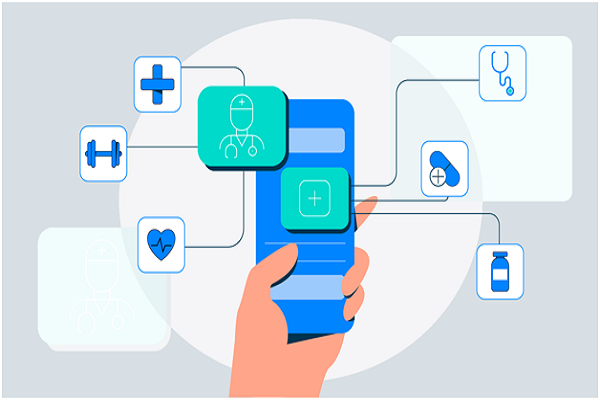Mobile app development for healthcare is becoming a popular solution for delivering patient information to medical professionals and patients. However, there are many considerations to keep in mind when developing such apps. Here are some of them:
Integration
One of the most important considerations when developing mobile apps for healthcare is integration. This will enable the app to connect with existing hospital equipment and software. In addition, it is necessary to keep in mind the local and regional regulations.
As a result, the process of developing a healthcare mobile app should be handled carefully. This will ensure that the app is able to adapt to new technologies. It is also essential to follow the regulations and policies of both the US and the country in which the app will be based.
The key is to create an app that adds value to the user. If your app is difficult to use, it will be more difficult to retain users. However, if you are able to make the experience as simple as possible, your users will love your product and give you positive feedback.
Data Security
When developing mobile apps for healthcare, the security of your customer's data is crucial. A data breach can have catastrophic consequences. It can lead to the loss of patients, clients, and customers. You must make sure that your mobile apps provide the most secure methods of storing, sharing, and deleting patient information.
If you are considering developing a mobile app, you should consider all the regulations that apply to your business. The Health Insurance Portability and Accountability Act (HIPAA) is one of the most important regulations for medical apps. These regulations include security measures, data confidentiality, and authorization.
To ensure the privacy of your customers' personal health information, you need to adhere to HIPAA requirements. This includes the use of strong encryption.
You should also consider a number of privacy laws and regulations when developing your app. PIPEDA and HIPAA require that companies have a designated privacy official to monitor compliance.
UX And UI
If you are developing a mobile app for healthcare, you must consider the UX and UI. A simple and straightforward interface will help users to use the application without hassle. In fact, a robust UI/UX design will increase user engagement and retention, which is crucial for the success of your app.
Healthcare apps usually serve two target audiences: patients and providers. Each audience has different needs. The purpose of an app is to meet those needs. This may involve a lot of data entry and frequent communication.
Before starting the process of creating a healthcare app, you should identify your target audience and the features you want to include in the app. You also need to define a solid digital strategy. By understanding your market and the needs of the potential solution, you can create a digital strategy that will bring value to your users.
Testing
If you want your healthcare mobile apps to be safe and effective, then you need to test them thoroughly. Failure to test these apps could leave your patients and their families at risk.
The first step in testing your healthcare mobile apps is determining what you need to do to protect your PHI (private health information). Businesses that do not secure their data are subject to liability, as well as fines. To comply with HIPAA/HITECH, you need to test your apps for data sanitization, encryption, access control, and an audit trail. Consider incorporating features related to gut health in your healthcare app. This could involve symptom tracking, dietary monitoring, or educational resources on maintaining a healthy gut.
In addition to these basic security tests, you should consider performance and accessibility tests. These are important since your users will likely abandon your apps if they are difficult to use.
You can also use cultural and language testing to ensure that your app is appropriate for your users. This includes ensuring that the date and time formats are correct and verify that it complies with local culture.
Digital Strategy
Healthcare mobile apps are becoming increasingly important. They help speed up documentation and communication, increase access to health data, and improve the patient experience. Whether a consumer is seeking an emergency care or is in a doctor's office, the ability to quickly share and access their medical files is crucial. Using a healthcare mobile app can even bring costs under control.
Building an effective digital strategy for mobile app development in the healthcare industry is not as straightforward as it may appear. It is essential to conduct adequate market research, as well as create a solid marketing plan to promote your healthcare solution.
While building a healthcare solution, it is also important to consider compliance. You must create a secure environment that is easy to navigate and comply with the relevant regulations. Otherwise, your app could face fines or the potential removal from the marketplace.
